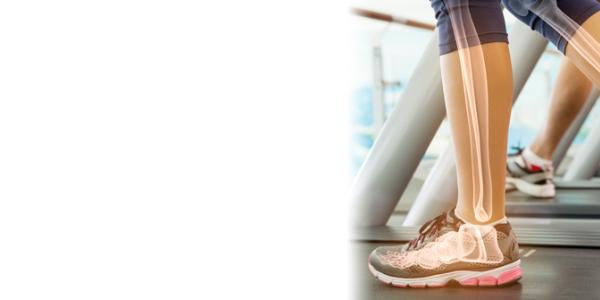While it's important to build strong and healthy bones during childhood and adolescence, you can take steps during adulthood to protect bone health, too. You are never too old or too young to improve your bone health.
Babies
Bone growth starts before babies are born. Premature and low-birth-weight infants often need extra calcium, phosphorus, and protein to help them catch up on the nutrients they need for strong bones. Breastfed babies get the calcium and nutrients they need for good bone health from their mothers. That’s why mothers who breastfeed need extra vitamin D. Most baby formula contains calcium and vitamin D.
Children
Good bone health starts early in life with good habits. While children and young adults rarely get bone diseases, kids can develop habits that endanger their health and bones. Parents can help by encouraging kids to eat a healthy diet and get at least an hour of physical activity every day. Jumping rope, running, and sports are fun activities that are great for building strong bones. Children need the amount of calcium equal to 3 servings of low-fat milk each day. If your child doesn’t drink enough milk, try low-fat cheese, yogurt, or other foods that are high in calcium. If your child is allergic to milk or lactose intolerant, talk to your pediatrician about milk substitutes.
Teens
Teens are especially at risk for not developing strong bones because their bones are growing so rapidly. Boys and girls from ages 9 to 18 need 4 servings of calcium rich and vitamin D-fortified foods each day, more than any other age group. At least 1 hour a day of physical activities—like running, skateboarding, sports, and dance—is also critical.
Adults
As adults, we need 1,000 to 1,200 milligrams of calcium (2-4 servings), depending on our age, and at least 30 minutes of moderate physical activity every day. Activity that puts some stress on your bones is very important.
Many women over age 50 are at risk for bone disease, but few know it. Menopause can cause lead to bone loss due to a drop in hormone production. Hormone therapy was widely used to prevent this loss, but now it is known to increase other risks. Your doctor can help advise you on protecting bone health around menopause.
Seniors
Physical activity and diet are vital to bone health in older adults. Calcium, together with vitamin D, helps reduce bone loss. Activities that put stress on bones keep them strong. Find time for activities like walking, dancing, and gardening. Strengthening your body will help to prevent falls. Protecting yourself against a fall is key to avoiding a break or fracture. All adults over age 65 should consider a bone density test. Talk to your doctor about your risk, and steps you should take to maintain or improve your bone health.
This article first appeared in the September 2017 edition of the HealthPerks newsletter.

